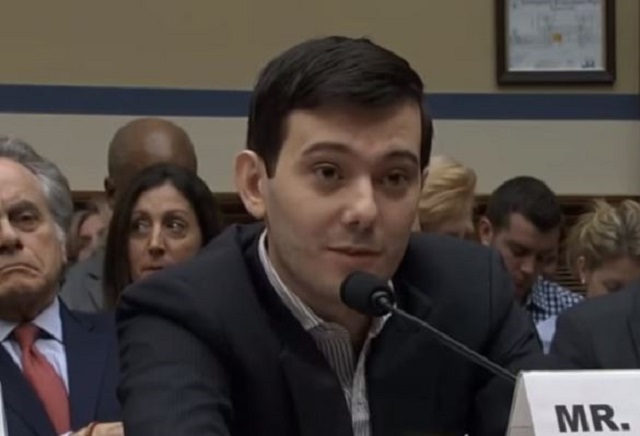
NEW YORK (AP) — “Pharma Bro” just won’t keep his mouth shut.
Even with his federal securities fraud trial set to begin Monday, Martin Shkreli has blatantly defied his attorneys’ advice to lay low. The former pharmaceutical CEO, who became a pariah after raising the cost of a life-saving drug 5,000 percent, has been preening for cameras and trolling on social media, potentially complicating his defense.
“I’m excited,” Shkreli said of the trial in a brief phone call last week to The Associated Press. “I can’t wait.”
Since his high-profile arrest in late 2015 when he was led into court in a gray hoodie, Shkreli has been free on bail and free to speak his mind. He went on Twitter to label members of Congress “imbeciles” for demanding to know why his company, Turing Pharmaceuticals, raised the price of Daraprim, a drug used to treat toxoplasmosis and HIV, from $13.50 to $750 per pill.
He took to YouTube for a series of lessons on chemistry and stock market analysis. His Twitter posts mocking a freelance journalist turned so creepy — one showed a fake photo of him canoodling with her — that his account was shut down. And on Facebook, he mused about the possibility of being “unjustly imprisoned.”
The 34-year-old Shkreli “travels to the beat of a very unique drummer,” exasperated-sounding defense attorney Benjamin Brafman said at a pretrial hearing this month.
Legal experts say there are obvious reasons lawyers want clients facing serious criminal charges to keep quiet.
“It’s twofold: You don’t want to antagonize the judge and you don’t want to get the attention of the jury in a way that hurts your case,” said veteran New York City defense attorney Gerald Lefcourt.
Columbia law professor John Coffee compared the situation to President Donald Trump‘s unruly tweeting habits. “A lawyer can caution him,” he said. “But just like Trump, he doesn’t have to listen.”
Though Shkreli’s notoriety came from Daraprim, the federal securities fraud case is unrelated. Prosecutors say that after Shkreli lost millions of dollars through bad trades through his side business hedge fund, he looted a second pharmaceutical company for $11 million to pay them back. The defense has argued that he had good intentions.
“Everybody got paid back in this case,” his lawyer said. “Whatever else he did wrong, he ultimately made them whole.”
The defense has floated the possibility that it would put Shkreli on the witness stand to try to highlight how he grew up in a working-class Albanian family in Brooklyn, taught himself chemistry, interned at a financial firm founded by CNBC’s Jim Cramer and struck out on his own to become a rising star in biotechnology startups. He wanted to develop new life-saving drugs after seeing “several classmates and other children he knew struck down by debilitating disease,” court papers say.
Prosecutors call it a ploy to portray the boyish-looking Shkreli as “a Horatio Alger-like figure who, through hard work and intelligence, is in a position to do great things if only the jury would ignore the evidence and base its verdict on sympathy.” The real Shkreli was a con man often undone by his own mouth, they say.
The government has cited claims by one of Shkreli’s former employees that Shkreli harassed his family in a dispute over shares of stock.
“I hope to see you and your four children homeless and will do whatever I can to assure this,” Shkreli wrote the employee’s wife, according to court filings.
Prosecutors also used his boasts about some of his purchases of eccentric collectibles to undermine efforts to reduce his bail from $5 million to $2 million. If he needed to raise cash to pay legal fees and back taxes, they argued, why not sell the one-of-a-kind Wu-Tang Clan album that he brought for $2 million or his Nazi-era Engima code-breaking machine?
Also cited were his offers to pay a $100,000 bounty for finding the killer of a Democratic National Committee staffer and $40,000 in tuition for a Princeton student who solved a math problem he posed during a guest lecture at the school earlier this year.
Shkreli “is not the demon he’s been made out to be,” the student, Yuan Wang, told the AP.
Still, he added, “I haven’t received the money yet.”
This article was written by Tom Hays of the AP.
[Image via CSPAN screengrab]